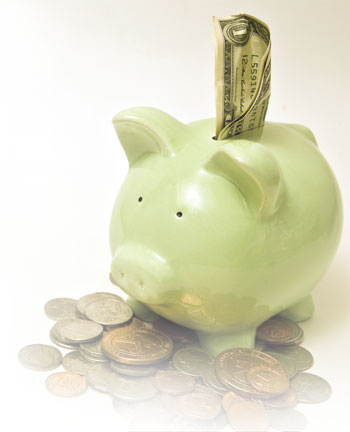
For many U.S. producers, 2010 will be a good year. USDA recently projected that net farm income will rise nearly 25 percent from 2009. As is always the case, however, the picture is never the same in any two places.
Some farmers have enjoyed solid profits for several years, while others are welcoming a reprieve from recent struggles. Some will have record profits, while others may not see any increase. For those who do have extra cash at year end, Farm Credit lenders share their perspectives on what to do with it.
Don’t Underestimate Liquidity and Equity
“Having a liquid balance sheet is the key to production agriculture,” says Doug Thiessen, chief executive officer of Alabama Ag Credit in Montgomery, Ala. “Every producer expects ups and downs. Liquidity can carry you through those down times.”
For that reason, lenders agree that a producer’s first question should be: Is my cash reserve healthy enough?
“The recent issues in the banking industry have made lenders more cautious about lending money,” says John Sloan, a vice president with the Farm Credit Bank of Texas. “In this environment, cash is important. If you have a strong equity base and enough liquidity, you have more options when it comes to financing.”
Make Sure Liquidity Keeps Pace With Growth
When some people have extra cash, they immediately want to expand. But they should be sure that working capital increases with the size and scope of their operations. “Otherwise, you increase the leverage on your liquid margin and put more risk into your operation,” says Tim McDonald, CEO of Great Plains Ag Credit in Amarillo, Texas.
McDonald explains: If someone has a 25 percent margin on a $500,000 operating loan, he will have a $125,000 liquid margin. If he expands the operation to a $1 million operating loan, he now will need $250,000.
Pay Down Debt
For those who carried over debt last year, excess profits can be used to reduce debt. “In our area, about a third of the producers who had a profitable year are using the extra income to clean up past problems,” says John O’Brien, Texas AgFinance vice president in Robstown, Texas. The remainder, he says, want to either keep cash on the books or invest in reasonably priced land.
Decide Whether to Expand
Whether buying land is a good idea depends on where you live.
“We’ve seen more people interested in buying reasonably priced farmland lately,” says O’Brien. “If they have 20 to 30 percent for the down payment, and they will make on it what they are paying to rent farmland from someone else, then they view that as a win-win.”
However, in areas where agricultural land prices are high, now might not be a good time to buy additional acreage.
Evaluate Equipment Purchases
In the southern part of Texas, only a handful of producers are making major equipment purchases. In other areas, it is a bigger consideration.
“Some producers have put off upgrading machinery for many years,” McDonald says. “If there is a significant need for new equipment, sometimes they will take a portion of the funds and buy equipment.”
After struggling with drought three of the last four years, Alabama producers face even more decisions. Drought has a major impact in this state, where only 10 percent of production land is under irrigation. Thus, the Alabama University Irrigation Initiative was launched to determine if expanded irrigation might revive row-crop agriculture. Farmers must weigh the upfront cost of installing irrigation systems and operating them over time against the potential increased yields and profits.
Many Alabama farmers are also considering planting cotton again, thanks to recent higher prices. “Cotton used to be Alabama’s No. 1 row crop, and agriculture experts think it could be again,” Thiessen says. “But if farmers don’t have the proper or updated equipment, they’ll have to invest in it.”
Manage Uncertainty
The high level of uncertainty in the banking and political arenas has made both lenders and borrowers more fiscally conservative. “People want to keep a little more cash these days and think harder before expanding their operations or buying more land,” McDonald says.
Farmers also need to consider the value of diversifying their financial portfolios versus keeping more money in the ag operation.
“You can pay down your operating line and carry money forward for the next season, but it will be tied up in your ag operation,” says Sloan. “You could consider diversifying your assets off the farm with investments that will generate additional income in the future.”
– Staff